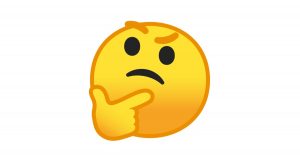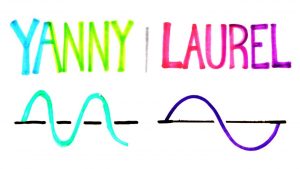So, I’m sure everyone has heard of the opinion-expressing media-breaking friendship-ruining Yanny/Laurel debate of 2018 by now. This interesting phenomenon split the social media literally in half where 47% of listeners insisted that the recording was saying “Yanny” while the remaining 53% believed that the voice clearly said “Laurel”. But before all of this mess and online warfare, there was only a dictionary.
The Yanny/Laurel debate firstly began on May 11, Katie Hetzel, a freshman at Flowery Branch High School in Georgia, was studying for her world literature class, where “laurel” was one of her vocabulary words. She looked it up on Vocabulary.com and played the audio. Instead of the word in front of her, she heard “yanny.” She then proceeded to put the audio recording on her Instagram story. Soon, a senior at the same school, Fernando Castro, republished the same audio clip on his own story where one of his buddies, Roland Camry, saw it and posted it on reddit under the title r/blackmagicfuckery where people of all sorts publish unusual nature-related events.
But most importantly, other than causing a massive cyber battle, this small audio clip debate between a kid’s high school class resulted in a massive media outburst where people from all countries, ethnicities and religions could experience this event. However unimportant and unnecessary this particular audio clip may seem, it undeniably sparked a massive wave of spreading throughout many media platforms such as newspapers, Facebook , Twitter, Instagram, Reddit, 9GAG and many more. This is a very clear example of how impressive the internet and the web has become in distributing information.
Social media, I believe, although having a great part in popularity, just reveals and magnifies an already existing topic and social dynamic such as it was in the Laurel/Yanny case. The controversy was definitely affected greatly by the influence of social media to help it spread and grow. But social media itself did not create the argument and controversy in the first place. Social media in general merely took part in the distribution of the news, not create them


Works Cited:
Matsakis, Louise. “The True History of ‘Yanny’ and ‘Laurel’.” Wired, Conde Nast, 18 May 2018, www.wired.com/story/yanny-and-laurel-true-history/.
“Laurel – Dictionary Definition.” Vocabulary.com, www.vocabulary.com/dictionary/laurel.